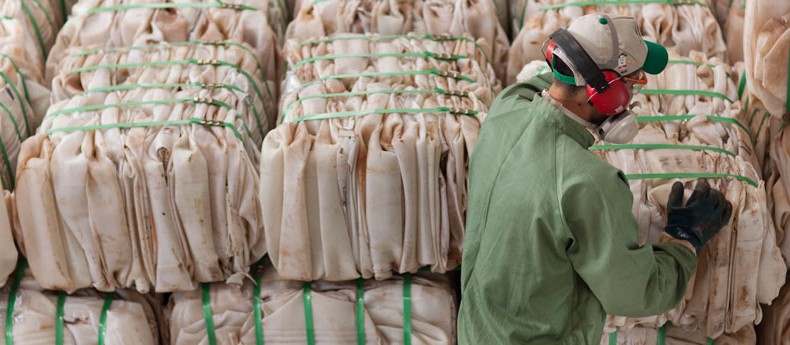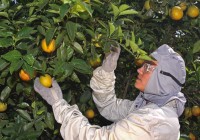30
jun

With a program that gathers producers, distributors and companies, Brazil can dispose 94% of the agrochemical containers used in farms in an environmentally correct way
During last year, Brazil reached an important mark in agriculture and it’s not about any record in production. The country was able to dispose 94% of the primary containers volume used in its farms in an environmentally correct way. These rates turned Brazil into a leader and world reference in the subject. Just keep in mind that in second place comes France with 77%, followed by Canada, with 73%. The United States comes in 9th place, with 33%.
In 2015 alone, 45,537 tons of containers were disposed, a 6.8% growth compared to the volume registered in 2014. The correct disposal of these materials prevents contamination in rivers and soils, in addition to prevent health risks to people and animals.
Ahead of this work is the National Institute for Processing Empty Containers (inpEV), a non-profit civil society organization, formed by 98 associated companies. The entity, created in 2001, promotes the program “Campo Limpo”, one of the most successful environmentally correct initiatives in the world for disposal of post-consumption agrochemical containers.
A network was organized through inpEV with more than 400 receiving units for empty containers, across 26 states, managed by around 260 distributors’ associations. The farmers purchase agrochemicals from around five thousand distributors and cooperatives, and they are responsible for washing and render post-consumption containers useless so, then, send them to the receiving units. From there, the containers follow to their final disposal, that can be incineration or recycling. The government authorities, in federal, state, and municipal level, are responsible for the inspection of the System and for orientation and issuing licenses for the receiving units, in addition to support educational actions.
The program has its operation based on the dynamics of reverse logistics, responsible for integration and articulation of all chain links. These agents share responsibility, according to Federal Law 9,974/2000. The Brazilian legislation requires that each agent active in the agricultural production in Brazil fulfils a specific role in the receiving process and final disposal of the empty agrochemical containers, as links in an integrated chain.
Producers
- To wash all containers and render them useless
- To store them temporarily in the property
- To return them to the place indicated in the product’s invoice
- To keep the return ticket for a year
Distribution channels / Cooperatives
- To indicate places of return in containers’ invoice
- To arrange and manage the receiving units
- To issue a return ticket for producers
- To educate producers and raise awareness
Industry manufactures
- To remove the empty containers returned in the receiving units
- To make a correct disposal of containers (recycling or incineration)
- To educate producers and raise awareness
Government authorities
- To inspect the compliance of shared responsibilities
- To issue licenses for receiving units
- To educate producers and raise awareness
http://www.inpev.org.br/relatorio-sustentabilidade/2015/index.html
- |

